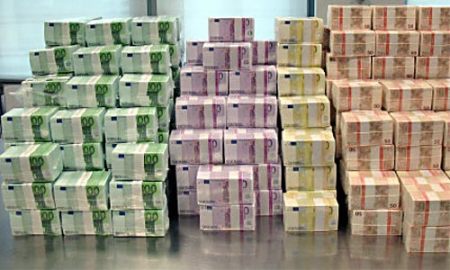Police patrolling a shopping centre car park in Naples, Italy, who became suspicious of a man loading boxes into a van from another vehicle, probably suspected they might happen upon a seizure of something counterfeit. Leather goods and fake designer shirts, either home-grown or from Asia, are among the favourites of Italian purveyors of forgeries. So they will have been more than mildly surprised when the fakes in the fifteen boxes they ultimately searched turned out to be bank notes valued at 17 million euros.
The banknotes “were a very good copy of the original and absolutely capable of deceiving most consumers because they successfully imitated the texture, the security band and the holograms,” according to a police statement.
The unnamed man, now accused of counterfeiting currency with intent to distribute, had no criminal record, police said. Investigators hope to now find out who made the notes.
The Naples area has become a hotbed for counterfeiting in Italy. Just this week, the top regional counterfeiting investigator, Gerardo Marinelli, said that half of all fake bills in the eurozone come from the Naples area, according to estimates based on previously sequestered banknotes.
The seizure of the 340,000 forged 50-euro notes exceeds the 331,000 counterfeit bills of all denominations withdrawn by the European Central Bank in the currency’s 18 countries during the first six months of 2014, but comes as just a small fraction of the 16 billion fake banknotes ECB officials believe to be in circulation.
The bank introduced a new 10-euro note on Tuesday as a way to increase protection against counterfeiting.
It’s not just counterfeit bills that Naples has become known for. Law officials have also cracked down on producers making knockoffs of clothing, shoes and accessories.









